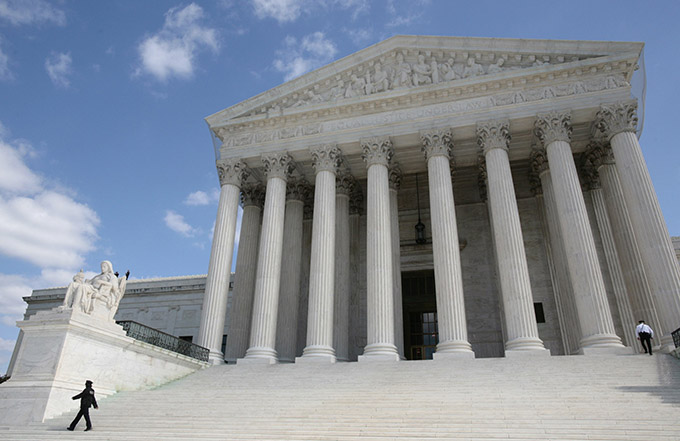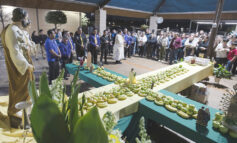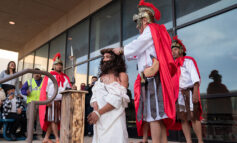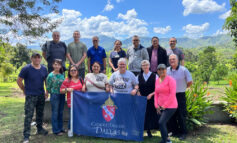By Catholic News Service
WASHINGTON (CNS) — The Supreme Court June 25 overturned the part of the Voting Rights Act used to determine that 15 states have had to comply with the law’s protections for minority voters.
The 5-4 decision said: “Section 4 of the Voting Rights Act is unconstitutional; its formula can no longer be used as a basis for subjecting jurisdictions to pre-clearance,” a process that has been used since the law was first enacted in 1965 to ensure polling places are readily accessible to minority voters.
The provisions apply in nine entire states and individual jurisdictions in six other states with a history of discrimination. They have had to get advance federal approval of any changes to voting laws or procedures.
The ruling came in the second-to-last day of the court’s term. Rulings were expected June 26 in two cases involving same-sex marriage laws.
The nine whole states affected by the voting ruling, Shelby County v. Holder, include: Alabama, Alaska, Arizona, Georgia, Louisiana, Mississippi, South Carolina, Texas and Virginia. The six states that must get permission for changes in certain jurisdictions include California, Florida, Michigan, New York, North Carolina and South Dakota.
In his majority opinion, Chief Justice John Roberts said even though the law was renewed in 2006, it relies on an outdated formula for determining which jurisdictions are covered by its provisions. He said it relied on whether voting tests were employed in the 1960s or ’70s, for example, or whether they had low registration or voter turnout at that time.
An assortment of state and local laws that had been hinging on federal approval under the Voting Rights Act now may be enacted. The Associated Press said pending voter identification laws in Alabama and Mississippi were among them.
Because the ruling only struck down Section 4, the formula for determining where the rest of the law must apply could be rewritten by Congress.
In his opinion, Roberts said there’s no doubt voter discrimination still exists. “The question is whether the act’s extraordinary measures, including its disparate treatment of the states, continue to satisfy constitutional requirements. As we put it a short time ago, ‘the act imposes current burdens and must be justified by current needs.'” Joining him in the majority were Justices Antonin Scalia, Clarence Thomas, Anthony Kennedy and Samuel Alito.
The ruling met with a strong dissent from Justice Ruth Bader Ginsburg, joined by Justices Stephen Breyer, Sonia Sotomayor and Elena Kagan.




